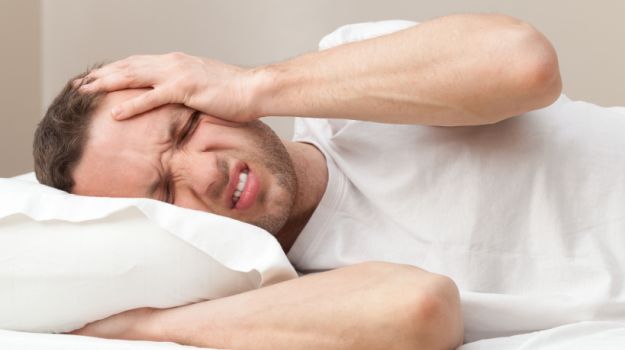 Keep Pets Out of Your Beds Keep Pets Out of Your Beds Humans spend around 25-35% of their lives sleeping. Sleeping is imperative to help an individual sail through the next day with energy and strength as it is a functionality that allows the body and brain to rest and recover from the stress of daily life. As children, we hate to sleep and love to keep our mommies too awake all the time. Growing up, as adolescents or teenagers, our sleep schedules change and we start falling in love with sleep. Weekends are majorly spent in sleeping through and sleepovers are celebrated. As adults, our sleep quality and quantity decrease drastically as we are pressurized with monetary issues, overburdened commitments and restless nights. Sleeping troubles can land a person with a host of health problems and when this is left untreated, it can end in dire consequences. ‘More or Less’ Don’t be Stressed Most people recommend around 7-9 hours of sleep for adults as a part of a completely healthy lifestyle. This is a common misconception and the quantity depends entirely upon the individual. It can be as little as five hours or as much as nine hours to function properly. Sleeping less or oversleeping, both can land a person in trouble. We usually sleep more for an hour or two during weekends to compensate for lost sleep during weekdays, but this turns out to have the opposite effect. While we think that this can keep us feeling more relaxed and rested, this extra sleep makes us feel groggy, still tired and less rested. Especially for migraine patients, oversleeping or under sleeping can trigger more migraines. Naps too can affect sleep quality during the night. How Much Vs How Effective You might sleep for a good-enough time, but you still feel drowsy and out of sleep. This might be due to poor sleep quality. Every time a person is interrupted from sleep, it takes at least an hour to reach the restful part of the sleep cycle. Yet another intrusion before reaching this restful sleep can cause further delay in the cycle. If a person wakes up multiple times during sleep at night, he/she can be termed to have zero hours of restful sleep technically. Poor sleep quality/quantity can cause drowsiness in the daytime, headaches, chronic fatigue, headaches, mood issues, irritability and poor memory. Trying to relax yourself and maintaining a calm atmosphere at home before bedtime can put you to sleep easily and improve sleep quality. Relaxation techniques that create a serene and calm atmosphere are mentioned at www.firsteatright.com. You can use these tips to get yourself into deep slumber. Urine Intrusions Waking up to use the bathroom is one of the common reasons quoted by people for disturbed sleep. Actually, bladder fullness is rarely a reason for waking up people and it is the spontaneous arousal that wakes them up. Only after waking up these people realize that their bladder is full. To better accept this, try going to bed with reduced fluid intake and checking out. Still, you would be waking up for the same number of times. Pets Aside You might love your pet, cuddle with it when you go to sleep and even share your bed with your cats and dogs while sleeping. It is best to keep your pets in a separate room while you sleep peacefully on the bed. Initially, for a day or two you might hear clawing noises and other major sounds near your door, but in a while these will subside and you get a good night’s rest with less fatigue. Sleep Apnea This is a serious sleep disorder in which breathing stops and starts often during sleep. This pushes the brain to repeated moments of suffocation. People make fun of the person snoring aloud but in reality, the loud snort is an indication that the person is gasping for air as the brain lacks sufficient oxygen supply. Sleep apnea is dangerous to the sleeper and disturbing to the sleep partner. It is the partner’s duty to bring the snorer to the physician and get it treated. While the snoring person might act defensive and be adamant that he/she has been snoring this way all these years, poor sleep is like alcohol. Drinking in the 20s might leave you groggy only until the next morning but drinking in your 50s might take an entire week to recover and resume normal activity. Apart from affecting memory, cognition and mood swings untreated sleep apnea can lead to increased risk of stroke, heart attack and dementia. These cases motivate many people suffering from sleep apnea to get themselves treated and also relieve their bed partner from insomnia. Comments are closed.
|
AVOID FRAUD. EAT SMART.+91 7846 800 800
AuthorDietitian & Nutritionist Dr. Nafeesa Imteyaz. Archives
July 2024
Categories
All
Dr. Nafeesa's Blog @blogspot |
- Home
- Written Testimonials
- Consult
- Clinics
- Blogs
-
Diet & Nutrition
- Diabetes Reversal
- IVF IUI not needed for PCOS PCOD Infertility
-
Medical Nutrition
>
-
Disease & Conditions
>
- Infertility | PCOS
- Diabetes Mellitus
- Cholesterol
- Hypothyroid
- Kidney Problems
- Hypertension
- Cardiovascular Diseases
- Liver Diseases
- Gastro intestinal disorder
- Cancer
- Metabolic Disorders
- Orthopedic Disorders
- Eating Disorders
- Dietary Recall
- Weight Record Filled By Clients
- Online Payment Transaction Details
- Online Clients Weight Check Form
- Our Program Package Service Charges
- Weight Record 2017 Clients
- Measurements sent by Clients
- Terms & Conditions Of Payment
- Thanks. Your Form is Submitted
- Video Testimonials
- Lifestyle & Wellness
- Lifestyle & Wellness Blog
- Allergy & Intolerance
- Weight Loss / Gain
- Weight Loss / Slimming Blog
-
Disease & Conditions
>
- Life Cycle Nutrition >
- Sports Nutrition >
- Integrity in Nutrition
- Knowledge Centre
© COPYRIGHT 2022. ALL RIGHTS RESERVED. FRST HEALTHCARE PVT LTD.
Dr. Nafeesa Imteyaz of First Eat Right clinic, is the Best Dietitian Nutritionist in Bangalore. Best Dietitian Nutritionist in Pune. Best Dietitian Nutritionist in Hyderabad. Best Dietitian Nutritionist in Chennai. Best Dietitian Nutritionist in Mumbai. Best Dietitian Nutritionist in Delhi. Best Dietitian Nutritionist in Kolkata.


